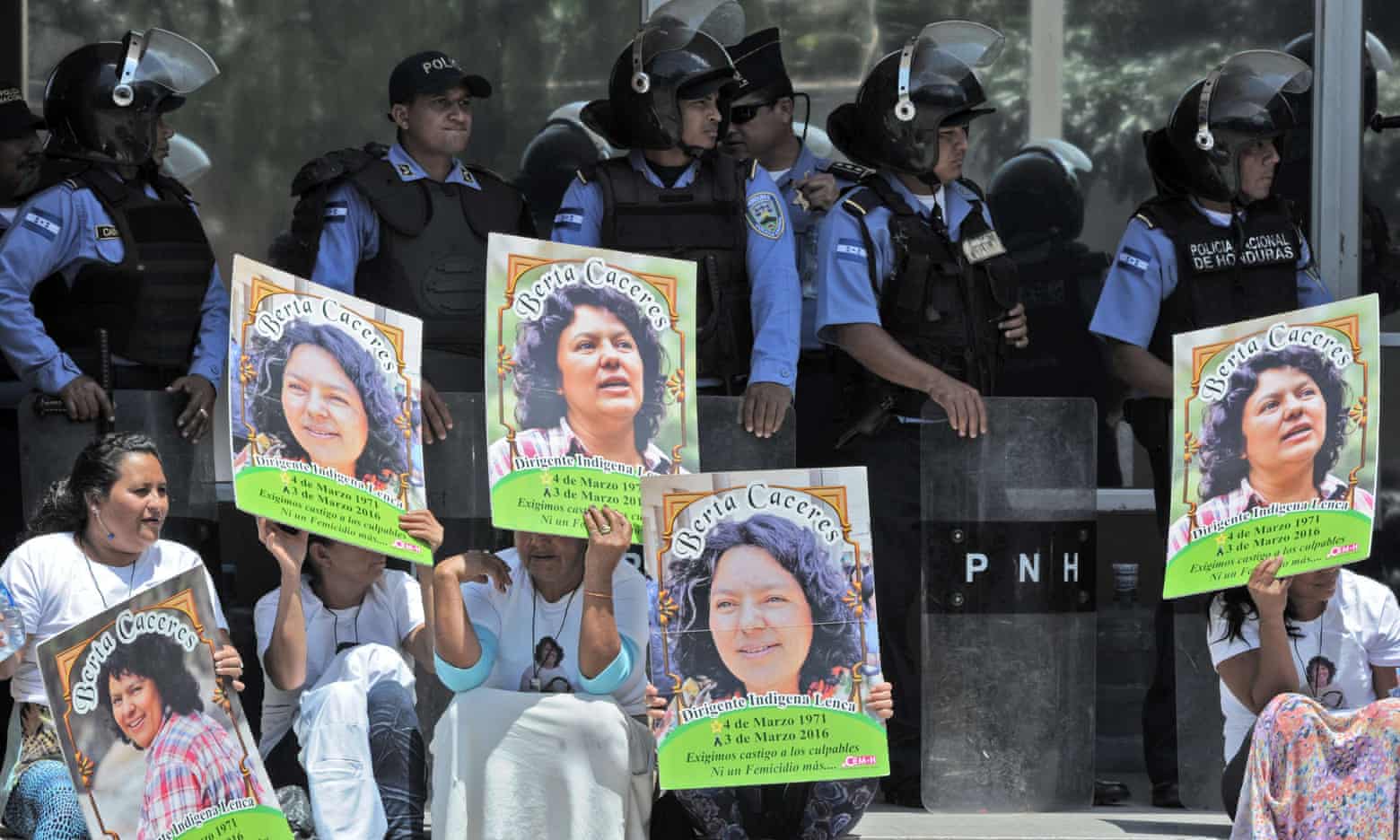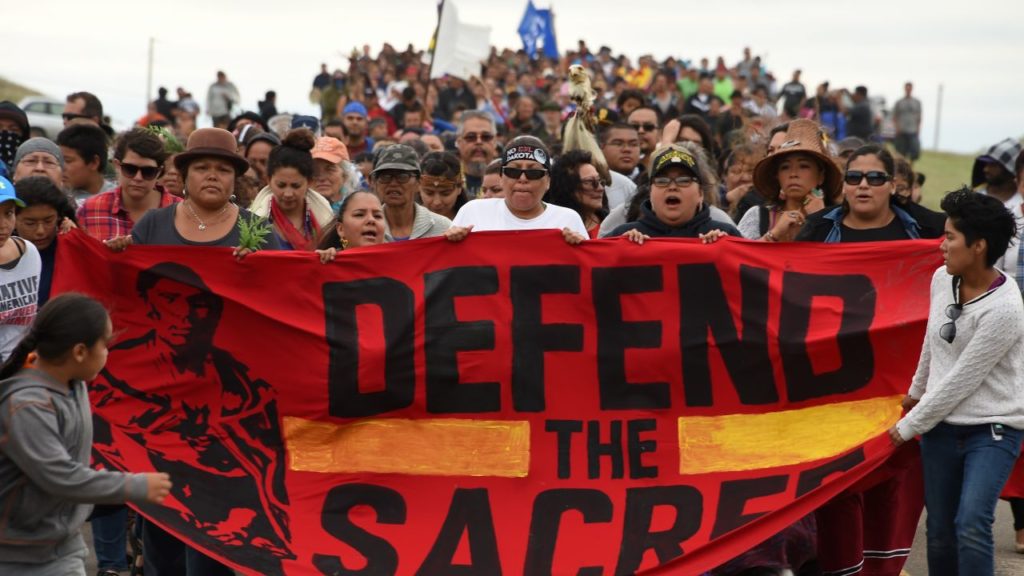
The U.S. government in collusion with the Honduran government killed Berta Cáceres on March 3, 2016. Cáceres, Coordinator of the Civic Council of Popular and Indigenous Organizations, was awarded the 2015 Goldman Prize for her efforts in organizing indigenous resistance in Lenca, Honduras, against the Agua Zarca Dam. In 2009, a U.S. backed military coup in Honduras paved the way for massive deregulation, furthering opening the country’s resources to exploitation from multinational corporations. The flow of capital out of the country coincided with a massive expansion in environmentally destructive megaprojects, including the Agua Zarca Dam, that were forced through with assistance from militarized private security firms and the Honduran military. According to SOA Watch, “The Associated Press has repeatedly exposed ties between the Honduran police and death squads, while U.S. military training and aid for the Honduran security forces continues.” In a 2015 interview, ousted democratically elected President Manuel Zalaya remarked, “Recall the human trafficking, trafficking of children, trafficking of women who go to the United States and pressure the U.S. borders, indeed bringing pressure to bear on the stability of the United States, precisely because of the failure of the policies here in Honduras. I could say the same of the new initiative of President Obama, who is talking about $1 billion in financing for the northern triangle, for Guatemala, El Salvador and Honduras. In this regard, measures of repression have been adopted—that is, closing the borders, militarizing the borders, preventing persons from exercising their right to migrate. Because migrating is a right. It is a human right. All of our countries emerged from migration, the United States itself from European migration.” Millions are fleeing the violence stoked by the United States acting on behalf of the interests of capital. To understand the rise of the far right reaction in the era of neoliberal globalization, we must understand the violence abroad and at home within our own borders.
In North Dakota, as the U.S. lays the infrastructure for its role in consuming and shipping evermore toxic fossil fuels, a war between indigenous peoples and the state, in cahoots with capital, is being waged. Thousands of indigenous Water Protectors have congregated at the Lakota Pine Ridge Indian Reservation to demand the immediate end of all construction of the Dakota Access Pipeline, which would carry hydrofracked crude oil over 1,100 miles, endangering the environment and access to clean drinking water every step of the way. Since April of 2016, with the establishment of the Sacred Stone Camp, indigenous peoples have been engaged in peaceful protection of their lands and their water, protection for the generations with us now and those yet to come. While the people of Flint, Michigan are dying from the toxic water they drink, Water Protectors are being shot with rubber bullets, blasted with water cannons, attacked by tanks and grenades. Waves of resistance emanating out from the Sacred Stone Camp have followed – protestors shutting down local and national branches of many of the banks funding the $3.7 billion project, marching in the streets – which in addition to the numerous other mass movements for dignity and respect in the United States confronting injustices with direct action have led to the created perception of lawlessness and disorder. The same “law and order rhetoric” spanning generations has been deployed in the U.S. and abroad to legitimize the right’s rise by pointing to symptoms, while diverting attention from the structural diseases. As Howard Zinn wrote, “There is some truth, however, to the notion that acts of civil disobedience have a proliferating effect. Such acts, aimed at certain laws or conditions, may encourage others to similar acts, aimed at other evils. For instance, the sit-ins of 1960 probably helped lead to the Freedom Rides of the spring of 1961, and these in turn may have helped stimulate the civil rights demonstrations of late 1961, 1962, and 1963. And all the civil disobedience in the civil rights campaigns may well have had a stimulating effect on the tactics of the movement against the war in Vietnam. But that is not a general breakdown of law and order; that is a spread of organized protest against wrong. And such an effect is to be welcomed by a country seeking improvement.”
In Syria and beyond, the millions of nameless faces that would sooner drown in the Mediterranean than continue living in a state of perpetual trauma and violence pour into the heartlands of the great European democracies, built on the resources and wealth stolen from centuries of empire. In Poland, a far right government has risen to power riding a wave of xenophobia. In Britain, lawmakers make plans for Brexit as the European Union crumbles at the edges. In France, the leader of the French National Front party Marine Le Pen surges to the top of the polls running on a platform of law and order, opposition to immigration, and white nationalism. These phenomena are as global as the world financial order, and to understand them our analyses must re-center the global. In order to understand the success of Brexit and the recent election of Donald Trump, we must return our attention to the global to understand the role of empire, exploitation, and capitalism in leading us to where we find ourselves today.

(Photo Credit 1: The Guardian /Orlando Sierra/AFP/Getty) (Photo Credit 2: Bill Moyers /Robyn Beck/ AFP/Getty)
